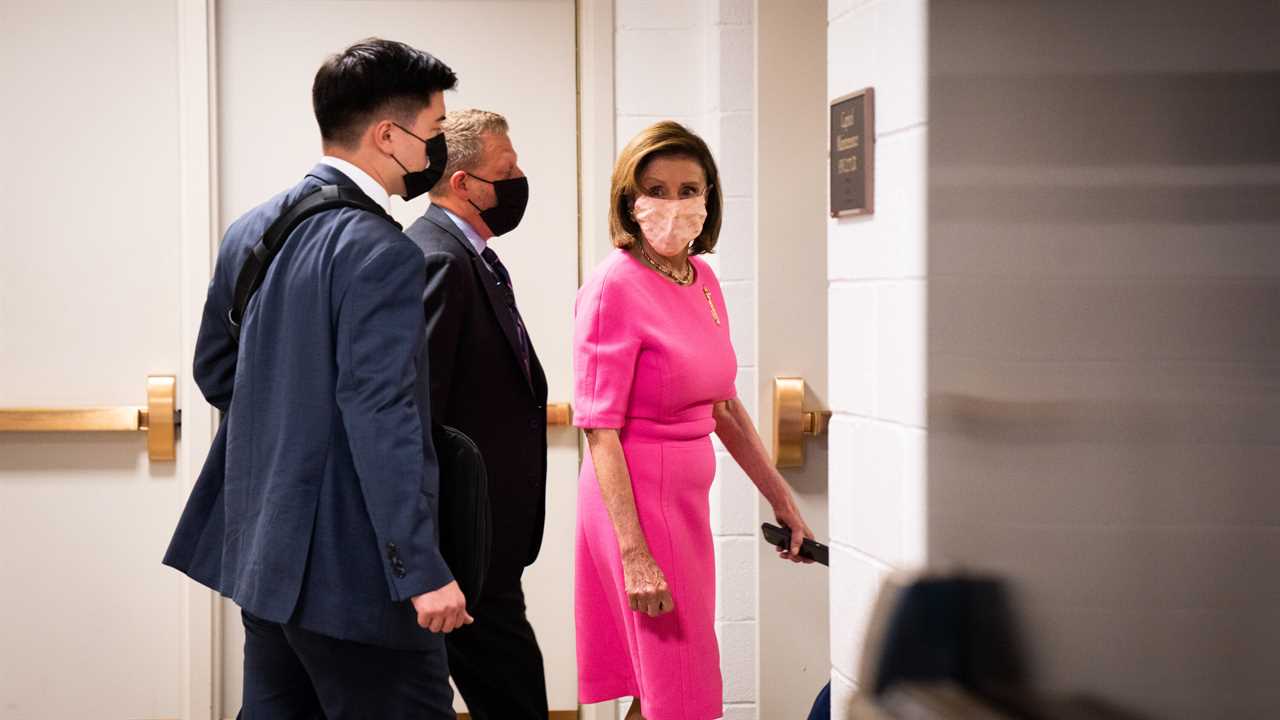
House Democratic leaders on Friday said they would take up both a $1 trillion bipartisan infrastructure bill and a far-reaching, multitrillion-dollar social safety net plan next week, as they worked feverishly to bridge deep divisions within their ranks that are holding up President Biden’s top two domestic priorities.
To placate moderates who were resisting voting for the $3.5 trillion budget plan, Speaker Nancy Pelosi of California committed last month to hold a vote by Monday on the infrastructure package, which passed the Senate over the summer.
But progressives have said they will not support that bill until Congress acts on a $3.5 trillion plan to provide vast new investments in education, health, child care, paid leave and climate programs and raise taxes on the rich. The plan to move forward on both was a bid to head off a liberal revolt and salvage the chances for both measures.
In remarks on the House floor, Representative Steny H. Hoyer of Maryland, the majority leader, said the chamber would begin considering the infrastructure bill on Monday, and that a floor vote later in the week on the second package was possible.
In a narrowly divided Congress, Ms. Pelosi can afford to lose as few as three votes for the domestic policy plan, which Democrats are pushing through using the fast-track budget process known as reconciliation, which shields it from a Senate filibuster. House Republicans have urged their members to oppose the $1 trillion infrastructure package, so more than a few defections could sink the bill.
“We’re at a stalemate at the moment, and we’re going to have to get these two pieces of legislation passed,” Mr. Biden said in remarks at the White House. “Both need to be passed.”
The push to demonstrate progress on Mr. Biden’s agenda came as lawmakers grapple with how to structure the proposal and pacify moderates who want to see the scope of the reconciliation package narrow. Difficult decisions about what programs to keep and what to jettison have yet to be made between Democrats on both chambers.
“We’ve been waiting for weeks for people to tell us what they’re not going to vote for,” Representative Pramila Jayapal of Washington state, the chairwoman of the Progressive Caucus, told reporters on Friday.
It also sets up a frenetic stretch just days before government funding is scheduled to lapse on Oct. 1. Senate Republicans are expected to block a stopgap spending package needed to stave off a shutdown because it contains legislation that would lift the limit on the federal government’s ability to borrow, a move Congress must make in the coming weeks to avert a first-ever default on its obligations. A procedural vote set for Monday is expected to fail.
“It will be our intention to deal with whatever bill the Senate sent back to us, if in fact they do not take our bill,” Mr. Hoyer said. “We believe that it is absolutely essential not to shut down government.”
In a letter to her colleagues on Friday, Ms. Pelosi said that “as negotiations continue, there may be changes” to the reconciliation legislation. The House Budget Committee is expected to advance the $3.5 trillion package, currently a 2,465-page behemoth, in a virtual meeting on Saturday.
It was unclear whether moderates would support a vote on the reconciliation package. They are reluctant to weigh in on the measure until it is clear what can pass the Senate, while the Senate has yet to publicly release its version of the legislation. It is also unclear whether private, bicameral negotiations have produced concrete agreement on the thorniest issues.
“There would be a lot of work that would have to be done between now and then to have a reconciliation bill that meets some of the requirements that she has agreed to,” said Representative Stephanie Murphy of Florida, a key moderate, speaking to reporters on Capitol Hill. “But I’m sure we’re all dedicated to working really hard to see if we can make something like that happen.”






